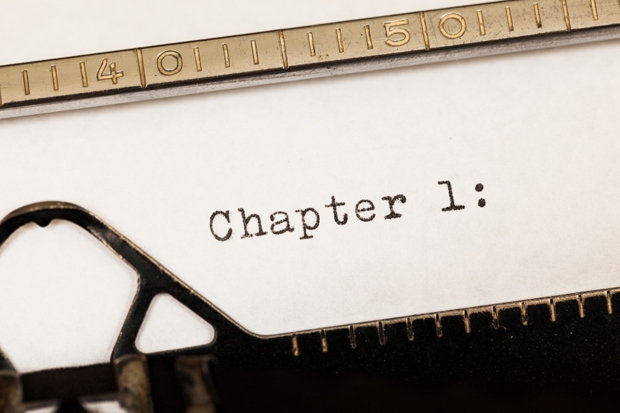At the beginning of this year I underwent a complete literary detox: an absolute, cold-turkey abstention from cutting-edge fiction of every stripe. I subsisted on police procedurals and grown-up Ladybird books, and watched a lot of TV. It was tough, but you’ve got to defrag the old hard drive once in a while. And it was worth it: when this new batch of first novels was helicoptered in, I felt ready to approach the gig in a spirit of optimism and can-do. I’m not even going to rant about the tendency of publishers to overmarket new writers, to box them up, underplay their strangeness and render them safe and familiar.
Love Me Back by Merritt Tierce (Little Brown, £14.99) and Your Heart is a Muscle the Size of a Fist by Sunil Yapa (Little, Brown, £12.99) both map acutely observed accounts of subjective emotional experience on to what might once have been called a social realist landscape. In the former, Marie, a waitress, pregnant at 16, juggles shifts, lovers and drug deals in a scarred, exurban landscape that it’s impossible to evoke without resorting to Americanisms — cinderblock, strip malls, parking lots. It’s honest (not least about its subjectivity — there’s an impressionistic, even dreamy quality to some passages), it doesn’t try too hard and it gives you a pretty clear idea of how horrible it must be to work in a restaurant: the expensive ones, where Marie is treated like one of today’s specials by affluent male diners, are often grimmer than the cheap ones, where at least there’s a big-hearted underclass solidarity.
Sunil Yapa’s novel, set during the WTO protests in Seattle in 1999, is organised, with Aristotelian precision, around two opposed viewpoints: that of the chief of police, whom we encounter 20 feet above the crowds in a cherry-picker, fielding commands from the mayor to clear a path through town by any means necessary for the WTO delegates; and that of his dead wife’s son, Victor, sleeping rough after a period bumming round South America, whose initial plan to sell weed to the revellers gives way to a growing involvement with them. There’s also a full supporting cast of hippies, yippies, yuppies, black blocs, beat cops and even the estimable Dr Charles Wickramsinghe, Sri Lanka’s finance minister.
This seemed, on one level, the most ambitious of these first novels. In its treatment of the ‘whither radicalism?’ theme it’s a shot across the bows of Jonathan Franzen’s Freedom and Jonathan Lethem’s Dissident Gardens, to name but two. It has to orchestrate the comings and goings of several characters; and any book set over a single day is aiming to be a microcosm of something bigger. It’s very effective on the foreground, street-level stuff, the smells and sounds, and the sparks of carnivalesque jollity that persist through the mounting violence. The dialogue is well done — though the writing is very ripe at times and there’s a lot of sloppiness. But I didn’t get into this business to be a cultural gendarme, writing tickets for mixed metaphors and point-of-view violations, and I hesitate to do so here — partly because Yapa is an MFA and it’s refreshing to see the academy’s chokehold on young writers loosen for once.
Ali Eskandarian’s Golden Years is subtitled ‘An Iranian-American Beat Novel’ (Faber, £14.99). It isn’t that, quite — and it is, like Yapa’s book, untidily written in places (though it’s very much a work in progress: the author was shot by a disgruntled ex-bandmate before it was finished). But it shows that you can successfully reinvigorate a tired genre by changing the ethnicity of the characters if you do so with heart and energy. It’s a lightly fictionalised memoir of a circle of Iranian musicians, on a spectrum between ‘lovably flawed’ and just plain ‘flawed’, larking about like baby foxes in what must have been the last authentically squalid loft in Brooklyn. It’s not clear whether they can play at all. But, as refugees from a puritanical theocracy, they are a more potent emblem of freedom and joy than 100 Tea Party rallies, or 10,000 pilled-up EDM maniacs.
This Living and Immortal Thing by Austin Duffy (Granta, £12.99) is a curious hybrid, a sort of technocrat’s picaresque. The narrator is an Irish oncologist on placement in New York, weighing up the emotional forces of family (and the more complex lateral stresses exerted by his estranged wife) against the clear and present attractions of Marya, who does translation work for Russian patients at the hospital, and whom the blurb unforgivably calls ‘beautiful but elusive’. Meanwhile, we get regular updates about his research, some of them in the form of footnotes, which is a little mansplainy, to be honest. Henrietta, the only one of his lab mice to have a name, undergoes a story arc that mirrors those of the key human players. Despite its chilly subject, the book has a certain lightness of touch. Duffy himself is an Irish oncologist based in the USA — though the estranged wife and beautiful but elusive Russian translator seem to be fictional.
The Maker of Swans by Paraic O’Donnell (Weidenfeld, £12.99) is certainly the most sonorous, the most beautifully made, of this selection: all Yeatsian cadences and Nabokovian sensuality. It’s also a disquieting and unfathomable book: a sort of pseudo-antiquarian magic-realist country-house melodrama, stained at the margins with lashings of Gothic (if you liked Downton Abbey, you’ll hate this). What passes for a plot is a pacy and vaguely Dennis Wheatley-ish parable of innocence and experience centred on the mysterious Mr Crowe, a kind of fallen angel to whom the young Alan Rickman would have done justice, his fragile yet prodigious ward Clara, and Eustace, valet, bagman and keeper of secrets. There’s also a noted soprano, a secret society — and even some swans (or rather cygnets), whose precarious fate mirrors that of their human neighbours.






Comments